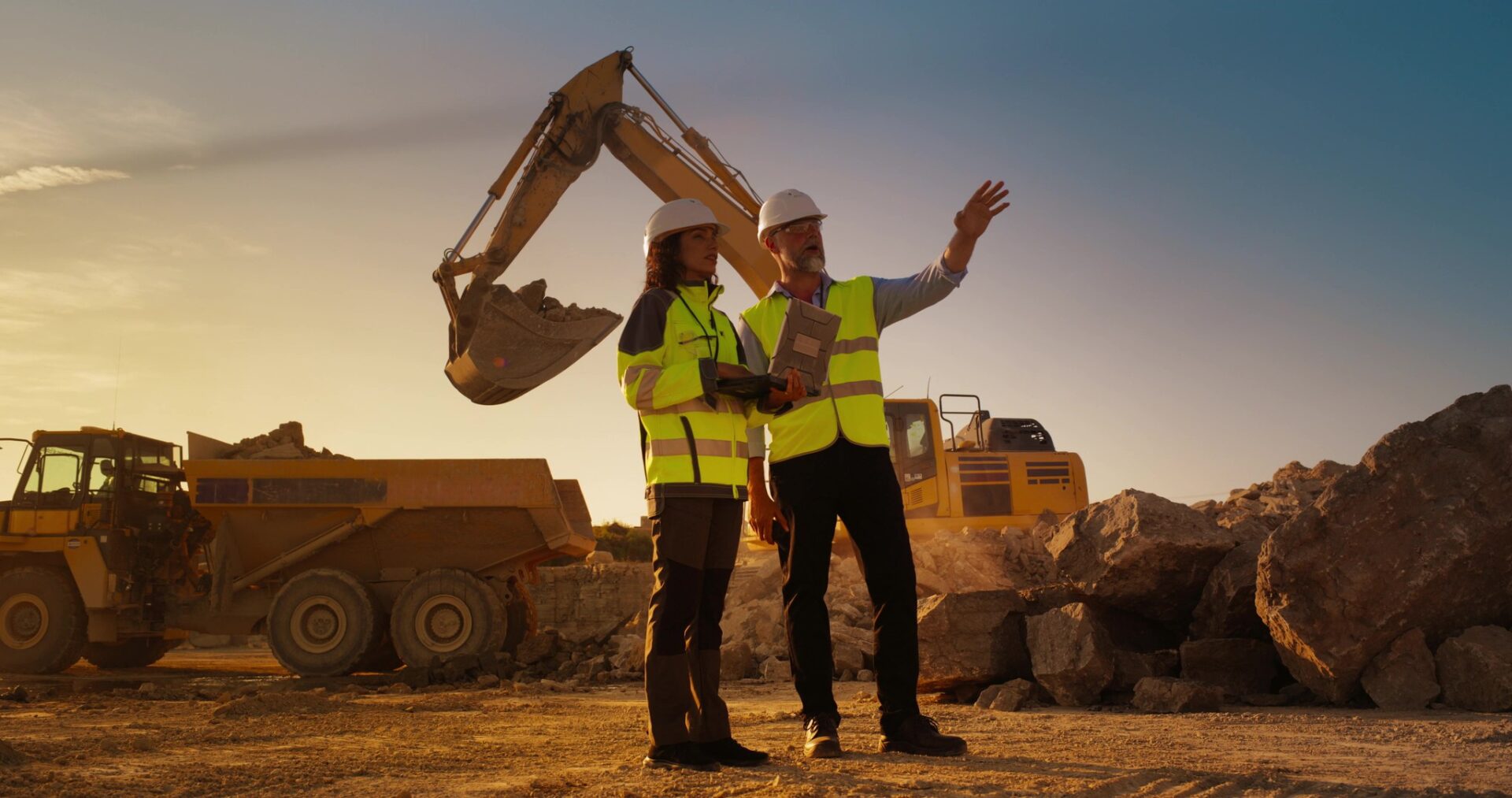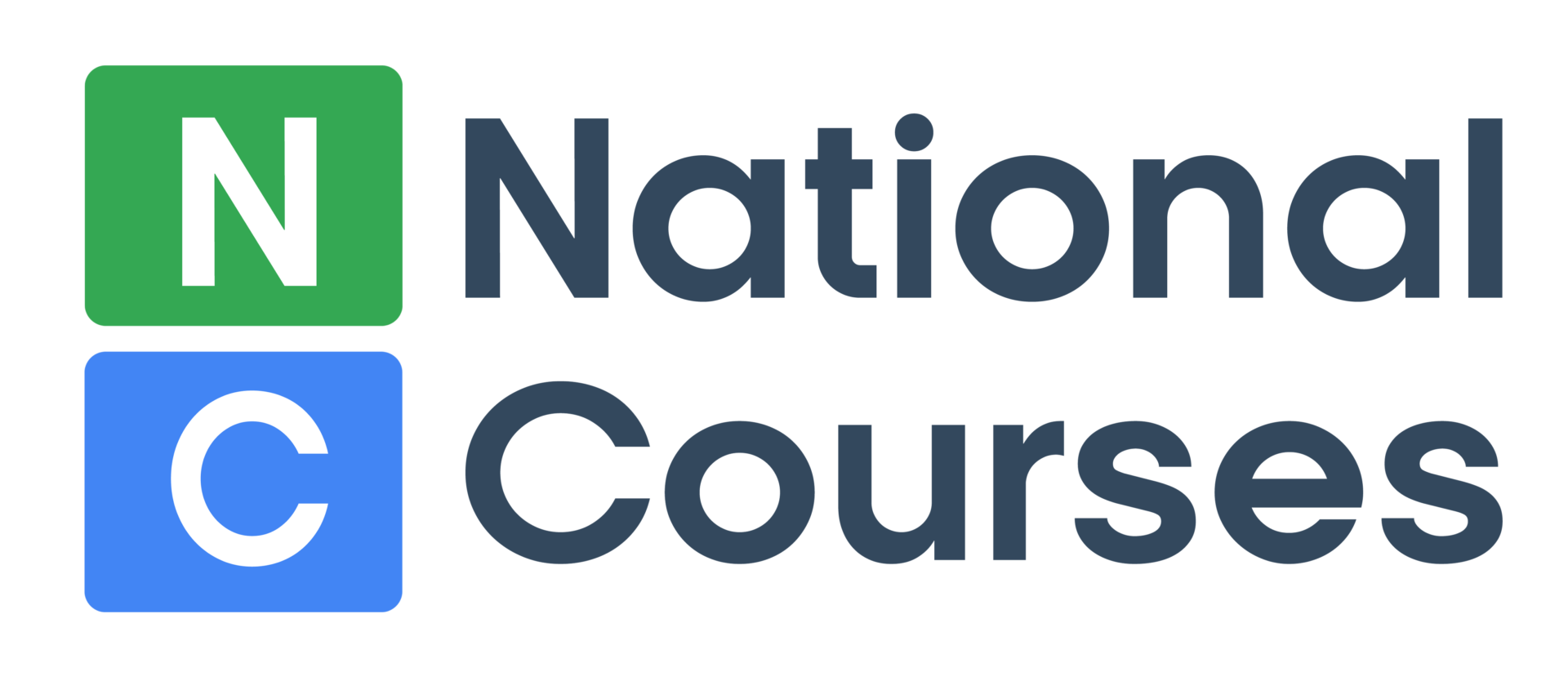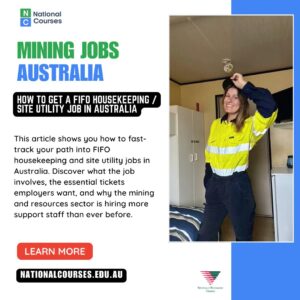How to Write a Resume for Mining, Civil, Tunneling & Construction Jobs in Australia
Video Tutorial:
Key Resume Takeaways
- Keep It Relevant: Tailor your resume to match the specific job requirements — highlight the skills and training that matter most.
- Be Clear and Simple: Avoid overcomplicating. Focus on showing you’re the right fit, not listing your entire career history.
- Use the Job Ad as Your Guide: Mirror the language and priorities they’ve outlined to make it easy for employers to see you’re qualified.
- Training Matters: Back up your resume with the right tickets and certifications that employers expect for the role.
- Show Progression: Even if you’re starting out, highlight your eagerness to learn and your plan for growth in the industry.

How to Write the Perfect Resume
Over the years, I’ve helped a lot of people break into construction, civil, tunneling, and mining jobs across Australia — and one of the biggest obstacles they face is getting their resume right.
I’ve seen hundreds of resumes in my time.
Some are too vague, some are overloaded with irrelevant info, and some are just plain hard to read.
The truth is, if your resume isn’t structured the right way, it’s probably not getting read or getting you a callback.
In this article, I’ll show you exactly how to build a resume that actually gets attention — especially if you’re applying for jobs like labouring, tunnelling, or FIFO roles, even if you’ve never worked in the industry before.
This is the same format I used to land jobs on major sites and I’ve seen mates get hired off the back of this exact layout too.
Let’s break down how to write and structure the perfect resume in more detail.
First Rule: Keep It Simple
When I was first trying to get into the industry, a friend of the family who worked in HR helped me build a resume that stood out.
That’s where I learned the importance of simplicity.
Recruiters don’t have time to read through walls of text.
They want to glance at your resume and instantly see that you’ve got the tickets, skills, and experience they’re after.
No fancy formatting, no irrelevant job history, and no long paragraphs explaining your life story.
Just clear, concise sections that hit the mark.
What You Should Include (And In What Order)
This is the exact layout I’ve used myself — and shared with others who’ve successfully landed jobs in mining, civil, tunneling, and construction.
It’s about giving employers what they’re looking for, in a clear order, without the clutter.
1. Your Name, Phone Number, and Email

Put this at the very top.
Make sure your contact details are up to date and professional.
Use a straightforward email address, and double-check your phone number — if they can’t reach you, you won’t get the job.
2. Tickets & Qualifications

Next up is your list of tickets or certifications.
This tells employers you’re qualified to be on site and that you’ve got the core training needed for the role.
Keep it relevant and in dot points.
Don’t overload it with unrelated or expired tickets.
Start with the essential certification needed to work on any construction site or in any high-risk workplace:
- White Card (CPCWHS1001 – Prepare to work safely in the construction industry)
If you’ve completed other site-specific tickets — like Elevated Work Platform (EWP), Traffic Control, Confined Spaces, Working at Heights, or a Forklift Licence — include those too, but only if they apply to the job you’re going for.
More isn’t always better — relevance is what matters most.
Tip: If you’re just getting started, even having your White Card on its own is often enough to get into entry-level jobs. From there, you can pick up more tickets over time as your career develops.
3. Skills & Experience

This section shows what you can actually do on site.
If you’re new, think about any practical, hands-on work you’ve done, even if it’s not formal employment.
Here are some easy examples that beginners can relate to:
- Helping dig trenches by hand
- Carrying and moving tools or materials
- Using basic hand tools like shovels, rakes, or wheelbarrows
- Following safety rules on site
- Working with a team and communicating clearly
- Finishing physical tasks during training or work experience
- Doing long shifts and managing fatigue
Keep these as short bullet points.
The goal is to show you understand what the job involves and you’re ready to learn more on the site.
4. Work History

This section focuses on your previous work experience and tasks you were reponsible for.
List your previous jobs that relate to the role you want.
Keep it simple — job title, employer, dates, and a few bullet points detailing what you did.
If you don’t have direct experience, that’s okay.
You can include casual work, volunteering, or any short courses or placements you’ve done that involved practical tasks or teamwork.
Note: Leave out jobs that aren't relevant to the role you're applying for (e.g. retail or hospitality experience), unless those skills are directly transferable.
5. Conclusion

Finish with a quick statement or paragraph about your attitude and readiness.
Keep it honest and straightforward — this helps employers see you as someone reliable and eager to work.
I’m a hard worker who takes safety seriously. I’m keen to learn new skills and ready to commit to doing the job well from day one.
A simple wrap-up like this can make a good final impression without sounding too formal or overdone.
Use the Job Ad as Your Cheat Sheet

When you’re applying for a job on Seek or another platform, pay attention to what they list under the "Requirements" or "About you" section.
That’s your blueprint for how you should customise your resume for this particular job application.
Take this real example above for an Entry-Level Underground Miner position.
They’re not asking for years of experience or expect you to hold all of your heavy machinery tickets at the beginning of your career.
What they do want is someone who can:
- Work 12-hour day and night shifts
- Pass a medical and drug & alcohol test
- Commit to a regular FIFO or DIDO roster
- Handle remote locations with limited phone reception
- Show up on time and manage fatigue
If that sounds like you — even if you’ve never worked a mine site before — say so.
Your Conclusion section might include things like:
- Comfortable with long shifts and physical work
- Drug-free lifestyle
- Reliable and always on time
- Open to working remote with limited contact
- Good at managing sleep, routine, and fatigue
This shows you understand the job and that you're a good fit for what they actually need.
Don't try to guess what an employer wants from you.
Just speak their language, keep it honest, and focus on matching your skills and experience with what they are looking for.
Want to Stand Out — Even with No Experience?

If you're just starting out, the best way to stand out is by showing you're serious. And that means getting the right tickets.
Employers won’t expect you to know everything on day one — but they will notice if you’ve taken steps to get job-ready.
Having a White Card is the bare minimum.
But adding tickets like Working at Heights or Confined Space can push your resume to the top of the pile — especially for entry-level roles in mining, civil, tunneling, and construction.
The table below shows how you can build momentum from day one, so you can progress towards higher-paying and more specialised roles.
Use the table below to figure out where you're at, what tickets make sense for you to obtain next, and how to show employers you're worth giving a shot.
| Stage | What You’ll Need | Course Options at National Courses | Next Step in Your Career |
|---|---|---|---|
| Get Started |
 White Card White Card Basic safety awareness Basic safety awareness
|
- White Card (Available in 6 states) - First Aid & CPR - Confined Space Entry - Working at Heights |
Entry-level construction labourer or TA (Trade Assistant) |
| Build Your Skills |
 Site readiness Site readiness Machinery or traffic training Machinery or traffic training
|
- Traffic Control (2 courses) - Forklift Licence (2 courses) - EWP Ticket (2 courses) - Construction Safety Courses |
Civil construction crew member, warehouse worker, or traffic controller |
| Move into Civil or Mining |
 Mobile plant operations Mobile plant operations Safety & compliance Safety & compliance
|
- Mobile Plant Tickets (14 machines) - Standard 11 Mining Course - Fire Safety Training - Demolition Worker Courses |
Plant operator, demolition crew, mine site labourer |
| Upskill & Specialise |
 Industry tickets Industry tickets Career-specific qualifications Career-specific qualifications
|
- Scaffolding (Basic to Advanced) - Hospitality RSA/RSG (for dual-industry work) - Construction Safety Refresher Courses |
FIFO roles, supervisory roles, dual-industry employment |
| Stay Ahead |
 Real competency Real competency National recognition National recognition
|
- Fast certification across 22+ locations - High-quality trainers - Supportive, hands-on training |
Confidence to work anywhere in Australia, with nationally recognised skills |
At National Courses, we help you build real in-demand skills, fast-track the certification process, and get you job-ready for wherever your career’s heading next.
Final Advice to Create an Effective Resume

Your resume is your first impression for any potential employer — the key to opening doors.
Make it count.
- Stay relevant: Only include information that aligns directly with the job requirements.
- Keep it clear: Use simple language and a clean format to make your strengths stand out.
- Customise for each role: Tailor your resume to highlight the skills and experience the employer is looking for.
- Support your skills: Back up your experience with appropriate training and certifications.
This approach has helped me — and many others — land some of the best opportunities in the industry.
Use it as your foundation, stay confident, and keep expanding your skillset to stay competitive.
Good luck!
Ready to Take the Next Step?

If you’re serious about starting your career in mining, civil, or construction, getting the right tickets and training is the key.
Even if you’re new to the industry, the right skills and certifications will help you stand out and get hired much faster.
Explore your training options below and get job-ready with government-approved, nationally recognised qualifications.
About National Courses
Nationally Recognised Training and Certification for a Wide Range of Industries




National Courses Pty Ltd (RTO 41072) is a trusted training provider offering short, nationally recognised courses across Australia.
We specialise in practical, job-ready training for industries like construction, civil, safety, and first aid — helping individuals and businesses stay qualified and competitive.
National Courses PTY LTD works with government programs, employers, and community organisations to deliver training that leads to real employment outcomes.




